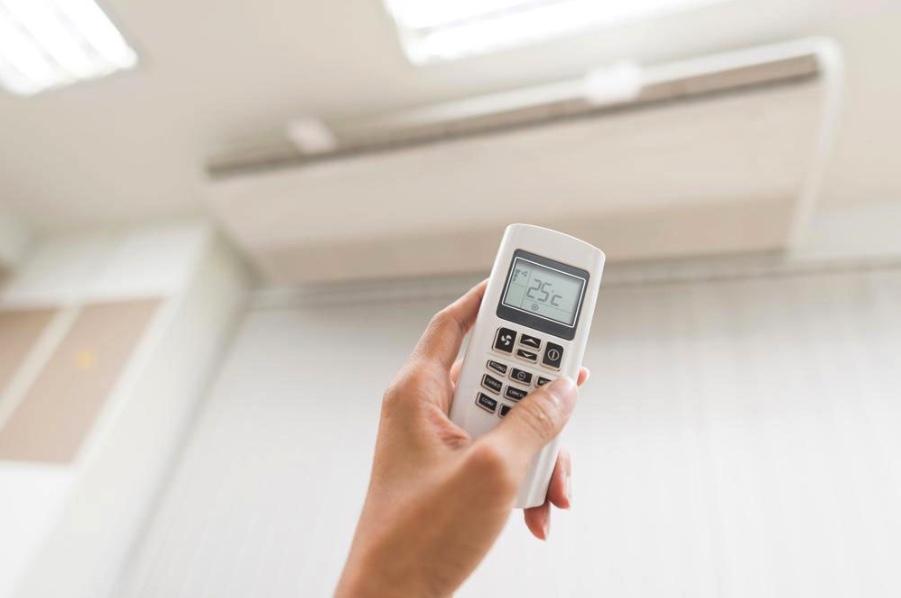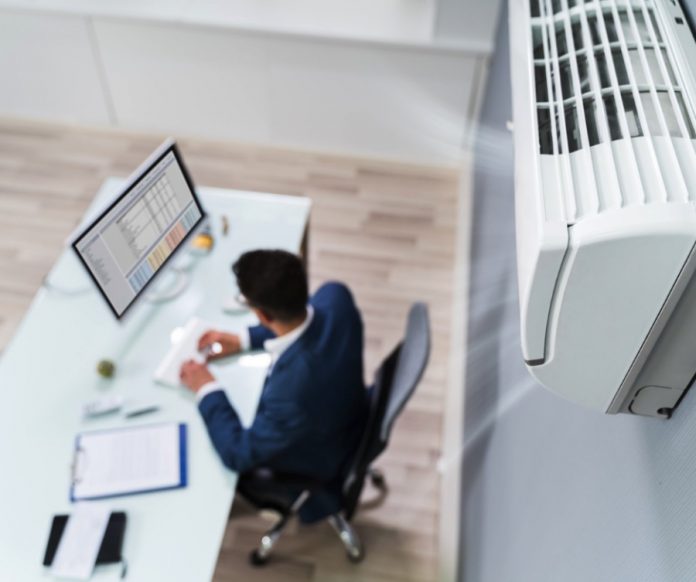#thethailandersnews
ในสภาพอากาศร้อนอบอ้าวของประเทศไทย เครื่องปรับอากาศหรือ “แอร์” เป็นอุปกรณ์สำคัญที่ช่วยคลายความร้อนและเพิ่มความสะดวกสบาย พร้อมระบบกรองอากาศที่ลดแบคทีเรีย ฝุ่น และสารก่อภูมิแพ้ เหมาะสำหรับผู้มีปัญหาระบบทางเดินหายใจ โรคหัวใจ หรือโรคปอด อย่างไรก็ตาม การอยู่ในห้องแอร์นานเกินไปอาจส่งผลเสียต่อสุขภาพได้ เช่น อุณหภูมิที่เปลี่ยนแปลงเร็วระหว่างในและนอกห้องอาจทำให้เจ็บคอ คัดจมูก และเพิ่มความเสี่ยงโรคทางเดินหายใจ อีกทั้งผิวแห้งแตก ระคายเคือง หากไม่ดูแลเครื่องปรับอากาศอย่างเหมาะสม อาจกลายเป็นแหล่งสะสมเชื้อแบคทีเรีย เชื้อรา และฝุ่นละออง ส่งผลให้ตาแห้ง ปวดศีรษะ ปวดหลัง และเสี่ยงความดันโลหิตสูงได้เช่นกัน
งานวิจัยจากหลายสถาบันชี้ว่าแอร์ช่วยลดความเสี่ยงจากโรคหัวใจและโรคหลอดเลือด รวมถึงป้องกันภาวะฮีตสโตรกในช่วงอากาศร้อนจัด อีกทั้งช่วยลดอาการภูมิแพ้และโรคระบบทางเดินหายใจเมื่อเปรียบเทียบกับการอยู่ในอาคารที่เปิดรับอากาศธรรมชาติ แต่การอยู่ในห้องแอร์ตลอดทั้งวันโดยไม่ออกไปสัมผัสอากาศภายนอกหรือพักผ่อน อาจทำให้เกิดอาการ Sick Building Syndrome(ซิค บิลดิ้ง ซินโดรม) หรือกลุ่มอาการป่วยที่เกี่ยวกับอาคาร เช่น ระคายเคืองตา จมูก และระบบหายใจ จึงควรเปิดหน้าต่างเพื่อระบายอากาศบ้าง หรือใช้วิธีอื่น ๆ เช่น การติดตั้งวัสดุกันความร้อนบนหลังคาและผนัง ใช้พัดลมเพื่อช่วยลดความร้อนและประหยัดพลังงานในบางช่วงเวลา หรือให้ผู้ใช้งานได้พักผ่อนออกไปสัมผัสอากาศภายนอกบ้าง เพื่อคลายความเครียดและลดการสะสมของสารระคายเคืองในร่างกาย อีกทั้งอุณหภูมิในห้องแอร์ยังมีผลด้านจิตวิทยา ประสิทธิภาพการทำงานจะอยู่ในระดับสูงนานขึ้นเมื่ออยู่ในห้องที่มีในอุณหภูมิสบายๆ ไม่ใช่ร้อนหรือหนาวมากไป

ดังนั้นการใช้แอร์อย่างเหมาะสมจึงจำเป็นต้องตั้งอุณหภูมิในช่วง 24-28 องศาเซลเซียส เพื่อรักษาความสมดุลของอุณหภูมิและป้องกันผลเสียต่อร่างกาย นอกจากนี้ การดูแลรักษาเครื่องปรับอากาศให้สะอาดและเปลี่ยนแผ่นกรองอากาศอย่างสม่ำเสมอเป็นสิ่งสำคัญ เพื่อลดการสะสมของเชื้อโรคและฝุ่นละออง
In Thailand’s hot and humid climate, air conditioners are essential for cooling and comfort, often equipped with air filtration systems that help reduce bacteria, dust, and allergens — making them particularly beneficial for individuals with respiratory problems, heart disease, or lung conditions. However, prolonged exposure to air-conditioned environments can have negative health effects. Rapid temperature changes between indoor and outdoor spaces may cause sore throat, nasal congestion, and an increased risk of respiratory illness, while also contributing to dry, irritated skin. Poor maintenance of air conditioners can turn them into breeding grounds for bacteria, mold, and dust, potentially leading to dry eyes, headaches, back pain, and even increased blood pressure.
Studies from multiple institutions indicate that air conditioning can lower the risk of heart disease, stroke, and heatstroke during extreme heat, as well as reduce allergy and respiratory symptoms compared to being in naturally ventilated buildings. Still, spending all day in an air-conditioned room without fresh air exposure can lead to Sick Building Syndrome — a condition associated with poor indoor environments — causing irritation in the eyes, nose, and respiratory system. To reduce these risks, it is advisable to occasionally open windows for ventilation, install heat-insulating materials on roofs and walls, use fans to lower heat and save energy at certain times, and allow time outdoors to relieve stress and reduce irritant buildup in the body.
Air-conditioned environments can also influence psychology — productivity tends to remain higher in comfortable indoor temperatures rather than in overly hot or cold conditions. For optimal use, experts recommend setting the temperature between 24–28°C to maintain thermal balance and prevent health issues. Regular cleaning and air filter replacement are equally important to reduce the accumulation of pathogens and dust.
#AirConditioning #Health #SickBuildingSyndrome #Temperature
ที่มา : hellokhunmor.com , huffpost.com
















